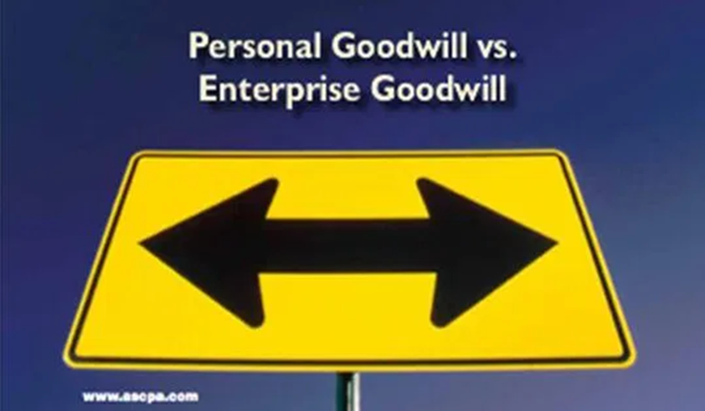Change of Ownership – SOP 50 10 5(K), Chapter 4 discusses changes in ownership. A change of ownership often involves key employees exiting the business and possibly the creation of intangible assets. As a loan officer, you must have a clear understanding of what portion of the seller’s Goodwill is transferable to the buyer and how much will walk out the door as a result of the management change. This can be dealt with by identifying which intangible assets (Goodwill) are transferable and how to transfer them to the borrower. If most of the Goodwill is associated with the enterprise itself and not with individuals, a change of ownership will have little or no impact on the value of the business.
SOP 50 requires the lender to consider the length of time the business has been under current management and, if applicable, the depth of management experience in the industry or a related industry. If the loan will be for a change in ownership, lenders must address the experience of the new management and potential impact on the business going forward. Stated or not, the SBA is worried about the amount of Goodwill exiting the business.
Many professional publications and textbooks have recognized and explained personal Goodwill. According to BVR’s Guide to Personal v. Enterprise Goodwill, if the Company neither owns nor has rights to the intangible asset that is responsible for generating a portion of the entity’s revenue and cash flow, the value of the personal Goodwill should be excluded from the fair market value of the Company. The allocation of Goodwill between “pure personal,” enterprise, and transferable Goodwill is driven by the degree to which the success of the business depends on the individual’s personal services.

There is no common definition of Goodwill. The Financial Accounting Standards Board views Goodwill as the amount paid in excess of the fair value of all purchased assets. When a bank is sold, there is often a premium paid by the buyer for the value of the deposit base. For example, when Bank A was sold to Bank B, Bank A had a very valuable deposit base. Bank B anticipated this deposit base would increase Bank B’s post-merger net interest margin. This is an example of “enterprise” Goodwill. There are three types of Goodwill lenders should be familiar with and identify when initially evaluating a loan opportunity and during the underwriting process:
Pure Personal Goodwill is an issue SBA lenders see day in and day out. The clearest example of pure personal Goodwill is seen in the underwriting of a professional practice or an insurance agency. It is safe to assume in these businesses that most of the value relates to professional and personal relationships. Patients come to see Dr. Jones because he has a great bedside manner or buy their insurance from Susan because she is a family friend.
Enterprise Goodwill is at the other end of the spectrum. Enterprise Goodwill is the value of earnings or cash flow directly attributable to attributes of the enterprise. Enterprise Goodwill is owned by the enterprise. Customers come to the business based on its location, reputation, unique products or services, etc. Good examples would be a nationally advertised franchise operation, a McDonald’s or Dunkin Donuts. Personal skills or relationships with customers mean very little or nothing in these businesses.
Transferrable Personal Goodwill is that Goodwill that is personal in nature but can be transferred to another entity or another person. Examples would be specialized knowledge that can be transferred through training and development of other persons. This could also be contact lists that have been developed over a long period of time or client relationships that can be transferred.
How Goodwill Affects Underwriting and Valuations – There are methods, but little available data, to calculate the value or income stream attributable to personal Goodwill. Every transaction is unique. If a large portion of the business’s value is attributable to personal Goodwill (a solo practitioner dentist for example) and the seller is not willing to commit to a long transition period and non-compete agreement, all the business’s value belongs to the individual and the individual’s personal Goodwill should be excluded from the fair market value of the Company.
Give us a call to discuss, we are here to help.
Chris Edwards and John Houser
McNair, McLemore, Middlebrooks & Co. LLC
389 Mulberry Street, Macon, Georgia
(478) 746-6277
www.mmmcpa.com
